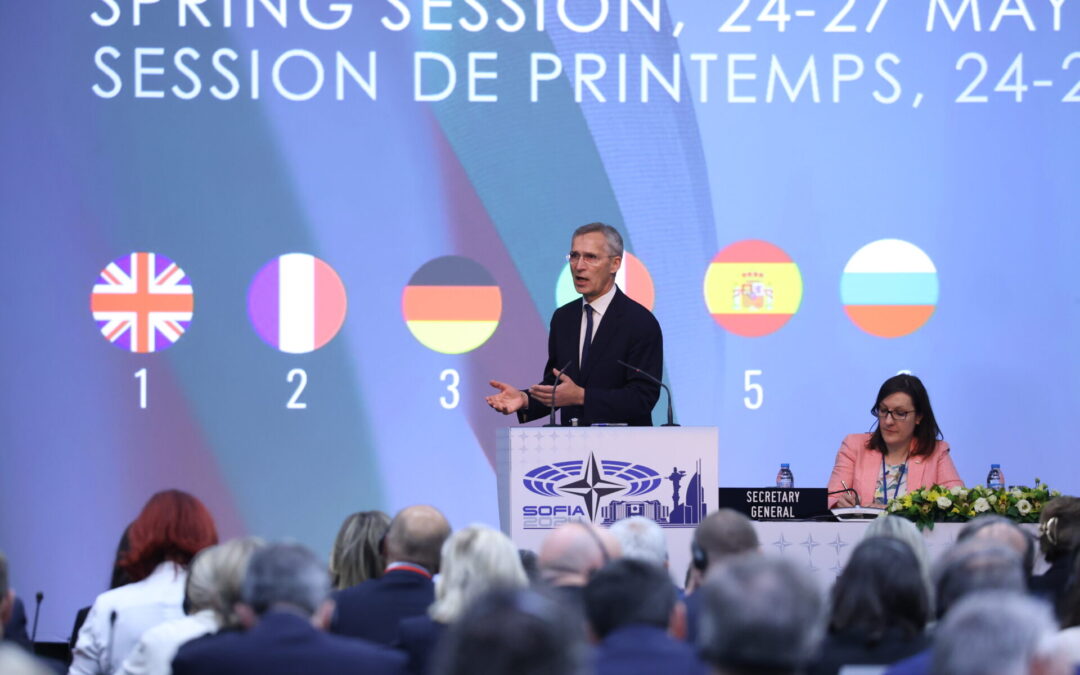The NATO Parliamentary Assembly, which took place in Sofia, adopted a declaration of support for Ukraine until victory. In the declaration, the delegates included an amendment, against which nine delegates voted, in support of Ukraine’s internationally justified right to self-defense by lifting some restrictions on the use of weapons provided by NATO and partners, and the ability to attack legitimate targets on Russian territory. The declaration was approved by a large majority, with one delegate voting “against” and one “abstaining”.
So far, most NATO countries have not allowed Kyiv to use the received weapons to strike targets in Russia, despite the calls of Ukraine’s President Volodymyr Zelensky. The Ukrainian delegation stated at the meeting that the restrictions hindered efforts to thwart the recent attack by Russian forces on a shopping center in Kharkiv, which killed 16 people.
Nearly 400 parliamentarians from the 32 NATO member states and 25 partner countries and parliamentary organizations participated in the forum in Sofia.
The President of the NATO Parliamentary Assembly, Michal Szczerba, pointed out that Ukraine should decide for itself how to use the weapons to defend itself. Ukraine can only protect itself if it can attack Russia’s supply lines, it is time to allow Ukraine to do what is necessary, Szczerba said.
Similar messages were sent by NATO Secretary General Jens Stoltenberg, who called for a reconsideration of the restrictions. Thanks to the assistance provided, Ukraine has liberated 50% of the territory seized by Russia since the beginning of the invasion, said Stoltenberg. He emphasized that in recent months the delivery of military support to Ukraine has been delayed, which leads to consequences on the battlefield. There is an urgent need for allies to agree on a greater role for NATO in coordinating support, insisted Stoltenberg.
Bulgaria remains firmly committed to supporting Ukraine, as long as necessary, said Bulgaria’s caretaker Prime Minister Dimitar Glavchev. Ukraine has become the defender of all of Europe, as well as our shared democratic values, he added. Glavchev noted that with seven decisions of the National Assembly, Bulgaria has provided technical, military, and humanitarian assistance, as well as funds for recovery. Glavchev stressed the need for a strategic approach to the Black Sea. We need NATO presence in the region, he stated.
At a joint briefing with Stoltenberg, the Bulgarian Prime Minister stated that the sending of Bulgarian soldiers to Ukraine has never been discussed. For me, this is a typical example of a hybrid attack and disinformation, he commented.
Russia is conducting a disinformation war against NATO countries, said Daniel Mitov, the head of the National Assembly delegation to the NATO Parliamentary Assembly. (27.05.2024)
 go to the original language article
go to the original language article
